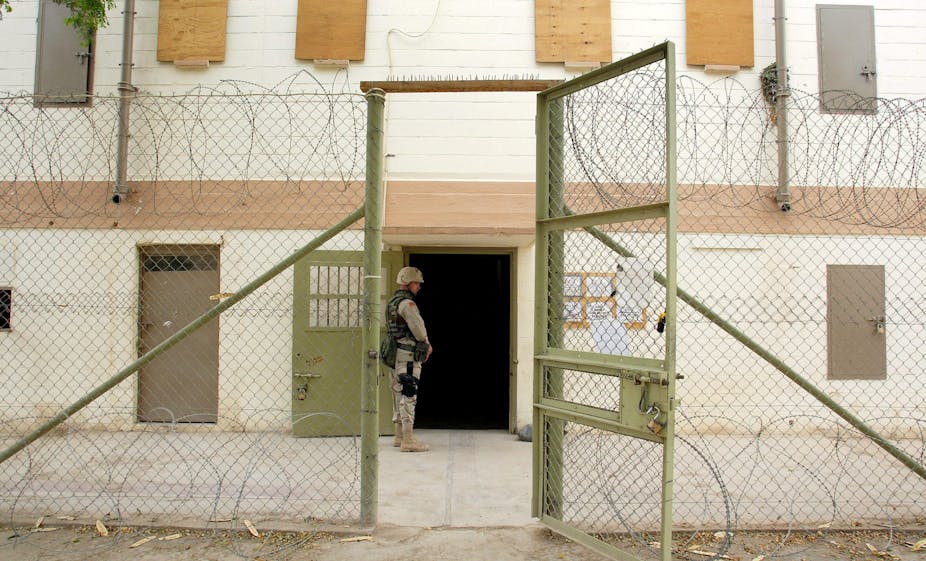Ever since the US Senate’s devastating report into the CIA interrogation practices, which concluded the agency’s conduct amounted to torture, the debate over how to punish those responsible has gone unanswered. While some have called for high-profile prosecutions, others have dismissed their demands as unrealistic or even inappropriate.
But in all the back and forth, the case of Mr Roy Belfast Jr. has been overlooked. He was found guilty of committing torture and is currently serving a 97-year sentence in a US federal prison. His case is clear precedent for a US court convicting a US citizen for torture – proving that the American legal system is perfectly equipped to do so.
Dark heart
Mr Belfast Jr, better known as Chucky Taylor, is the son of former Liberian President Charles Taylor, who is currently serving a 50-year sentence for war crimes. Chucky is a US citizen born in Boston in 1977 when his father was a student at Bentley College in Massachusetts.
In 1994, Chucky joined his father in Liberia. There he set up and led the dreaded Anti-Terrorist Unit (ATU), a notorious outfit responsible for his father’s security in the chaos of the civil war that engulfed the country between 2000 and 2003. In this capacity, he personally tortured and ordered the torture of people he suspected of supporting the insurgency against his father.
According to the judgment Chucky Taylor and the members of the ATU:
committed numerous and varied forms of torture, including burning victims with molten plastic, lit cigarettes, scalding water, candle wax and an iron; severely beating victims with firearms; cutting and stabbing victims; and shocking victims with an electric device.
Chucky Taylor was arrested in 2006 when he tried to re-enter the US after his father had been forced into exile in Nigeria. While he was in prison on charges of passport fraud, the US Attorney for the Southern District of Florida charged him under the US federal torture statute.
The law was enacted by Congress in 1994 to ratify the United Nations Convention Against Torture. It explicitly covers acts of torture committed by a US citizen “outside American borders”, acting “under the color of law” – meaning that the torture was committed, instigated or authorised by a public official or someone acting in an official capacity.
Milestone
The judgment against Chucky Taylor was hailed by US law enforcers as an important milestone in advancing the rule of law. Acting Assistant Attorney General Matthew Friedrich of the Criminal Division put it this way:
Our message to human rights violators, no matter where they are, remains the same: We will use the full reach of US law, and every lawful resource at the disposal of our investigators and prosecutors, to hold you fully accountable for your crimes.

And yet, at the same time as Chucky Taylor was standing trial for torture committed abroad, so-called “enhanced interrogation techniques” were being applied by US intelligence operatives around the world.
And even those crimes which did meet with judicial action were not treated as torture. The Abu Ghraib scandal had made headlines more than six years before, and in 2004, 2005 and 2007, a series of criminal proceedings were conducted against several soldiers implicated in the mistreatment of prisoners at the detention facility. Yet not one of them was found guilty of torture.
Hypocrisy
The release of the report on CIA interrogation practices throws unflattering light on US inconsistency when it comes to torture, and to human rights violations in general.
There is a ludicrous discrepancy between the 97-year sentence for torture against Chucky Taylor and the reluctance to initiate legal proceedings against those who committed or ordered torture “under the color of law” in the War against Terror. After all, the US torture statute is written to apply equally to all US citizens.
So far, the landmark trial against Chucky Taylor has been an exception, not a precedent. While US law enforcers were very keen to take on a 29-year old American who got embroiled in a messy civil war in an African “heart of darkness” they have little appetite to go after the US citizens exposed by the torture report.

